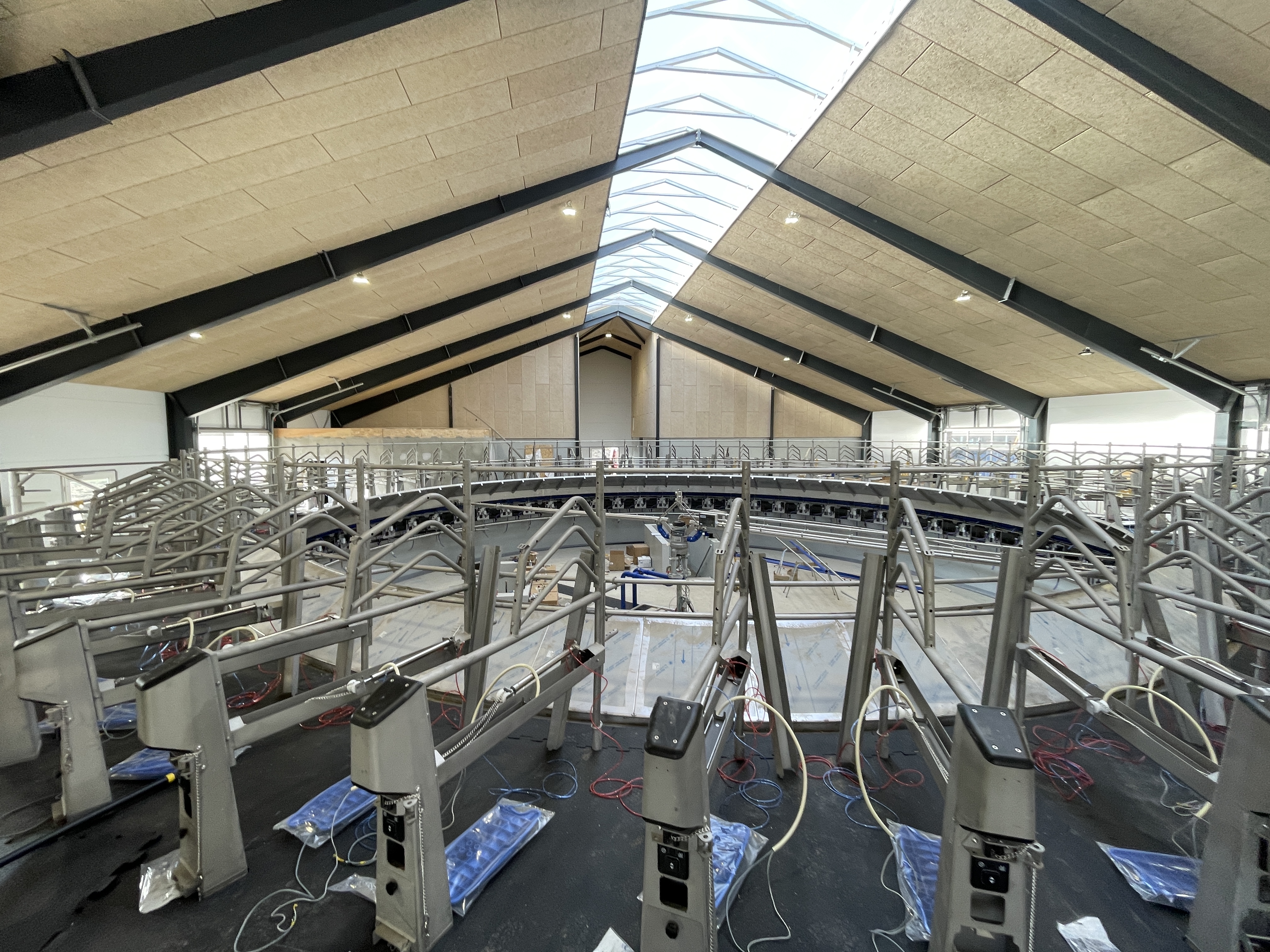
We strengthen the development of the agricultural industry with experienced consultants in construction, design, and mechanical engineering.
Tech-Huset has helped customers all over the country with the construction and design of: stable equipment, manure wagons, trappers, hose booms, silos for fodder and crops, transport systems and milking carousels.
We have helped Delaval with electrical, plumbing and concrete drawings for a major project in Jutland. The project consisted of setting up a milking carousel with space for 60 units.
We were involved in the start-up of the project, where our consultant has drawn up technical drawings in connection with the casting of the carousel's foundation, wiring of electricity and plumbing before carrying out the project.
Technology and Engineering for the Agriculture of Tomorrow
For years, Tech-Huset has supported companies across the agricultural sector with technical expertise and specialized consultants in design, development, and engineering.
Our engineers and technicians have contributed to the development and optimization of livestock equipment, slurry tankers, injectors, hose booms, feed and crop silos, transport systems, and milking carousels solutions that together support a modern, efficient, and sustainable agricultural industry.
Sustainability and Green Solutions
Sustainability is an integral part of our approach to agricultural projects. Our consultants work with design and engineering that promote energy efficiency, material reuse, and reduced environmental impact.
We help our clients develop machinery and systems that not only meet today’s standards but also contribute to a more circular and environmentally friendly production.
Innovation and Technological Development
Agriculture is rapidly evolving — and we help drive that transformation forward.
Tech-Huset’s consultants bring strong expertise in mechanical design, 3D engineering, automation, and mechatronics, enabling the creation of machines and systems that improve efficiency and reduce resource consumption.
Our experience spans from prototype development and testing to serial production, combining technical knowledge with a deep understanding of agricultural processes.

The Agriculture of the Future
The agriculture of the future will be more digital, automated, and data-driven and our consultants help make that possible.
We provide specialists who work with sensor integration, robotics, IoT solutions, and precision farming, where data is used to optimize everything from feed management to fertilizer application.
Together with our clients, we develop solutions that strengthen competitiveness in a globally connected industry while promoting more sustainable production.
Collaboration and Tailored Expertise
Every agricultural project is unique and so are our solutions.
We assemble consultant teams with the right competencies in mechanics, electrical engineering, automation, and project management, ensuring that each client receives the exact support needed to take their project from concept to completion.